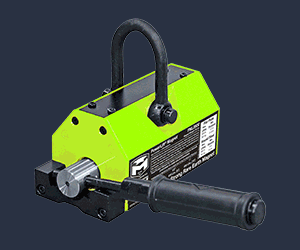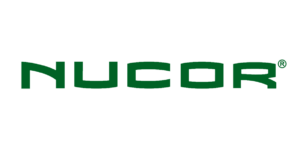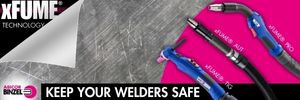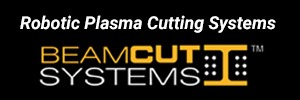You Get What You Expect
To meet higher customer expectations for faster, more flexible deliveries of vehicle frames and structures, engine cradles and other components, Deco Automotive expected their new automated pipe bending cells from Schwarze-Robitec to optimize cycle times, increase production output and reduce costs. Here’s how they got what they expected.
Posted: July 12, 2017
Suppliers to the automotive industry all face the same challenges: how to deliver components fast, flexibly and economically while also meeting individual customer demands. “Based on their own constant process optimization, our customers set high requirements for their pre-products and, by doing that, increase their expectations of us as a supplier. In order to provide different product versions in large quantities with consistently high quality, we must continuously invest to further develop our production capabilities,” says Ray Metzner, a manufacturing engineer at Deco Automotive (Toronto, ON), which uses four production lines to manufacture more than 1.75 million automotive components per year, including vehicle frames and structures and engine cradles that go to international OEMs and other clients.
Such high demand and output makes Deco dependent on reliable and intelligent pipe bending machines that can provide excellent results in degree of automation, precision, speed, and bending accuracy. Before being accepted by automobile manufacturers, steel pipes from the Toronto shop must run through a fully automatic cold bending process and subsequent manufacturing steps that include hydroforming, laser cutting and welding. The total number of bending processes reaches 12 million per year, a volume that was previously accomplished by using nine pipe bending machines spread over the four production lines. Seven of these bending machines came from Schwarze-Robitec GmbH (Cologne, Germany) – and three of those had been used for over 20 years.
To improve part quality and reduce cost, the shop replaced the three older machines with three new state-of-the-art automatic CNC 100 E TB MR VA pipe bending lines that use an NxG integrated high performance control system to increase output and optimize cycle times. Two of these new multi-stack bending machines are right-bending and one is left-bending. They are all equipped with a pipe magazine, a weld seam finding device, and an automatic loading and removal device. The electrically operated systems process round and oval tubes that are 2.8 m long and have a diameter of up to 76.2 mm, including a wall thickness from 1.2 mm to 3 mm.
The new pipe bending process is fully automated: The pipes to be processed are taken randomly from the tube magazine and fed to the integrated weld seam finding device that aligns the pipes in accordance with their weld seam position. Following the alignment, the pipe is passed on to the pipe bending machine. To do this, a mandrel is used to support the tube on tight radii from the inside. A fully automatic loading arm then removes the finished bent tube from the machine and places it on a conveyor belt. From there, the tube continues to the hydroforming equipment. Another feature of this system is the integrated raised, vertical travel routes that allow pre-loading of the pipe bending machine while, parallel to this function, a finished bent tube is removed at another location.
Compared to the old pipe bending line that had been in operation, these new machines are equipped with a high performance NxG control system that significantly reduces non-productive times by synchronously arranging the individual steps of the bending process. The NxG control makes it is possible to prepare the next step simultaneously to executing a machining operation. For example, while a pipe is supplied to the tool, the clamping functions close almost completely. When the tube then reaches its target position, the tool is immediately ready for the next bending step. This allows users to shorten their cycle times and reach their production objectives more quickly. An integrated diagnostic and maintenance tool inside the control system minimizes downtime. The intuitive operability of the NxG control also contributes to an ergonomic and efficient way of working. “These pipe bending machines produce reliable, accurate, and high quality parts, yet they are easy for our staff to use,” notes Metzner.
Using these new automatic bending cells, Deco was able to optimize their cycle times and increase their production output of increasingly complex shapes and materials. The accuracy they now produce and the repeatability of their new production equipment is outstanding. “With these new pipe bending machines and the bending programs in the NxG control system, we significantly reduced cycle times,” states Metzner.















